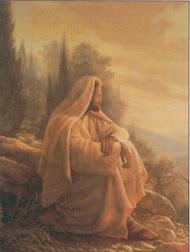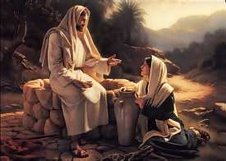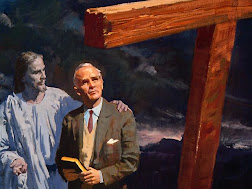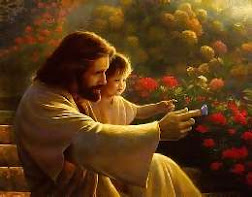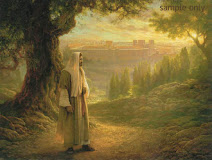REBUTTAL OF LDS (MORMON) TITHING ARTICLES
by Russell Earl Kelly, PHD
These LDS articles can be found on LDS.org.
WORST OF THE WORST LDS STATEMENTS:
The most damnable statement is: LDS: In this respect it is as essential as faith in God, as repentance of sin, as baptism for the remission of sin, or as the laying on of hands for the gift of the Holy Ghost. 4 Gospel Doctrine, 5th ed. (1939), 225.
Latter-day revelation tells of another blessing for those who tithe: “Verily it is a day of sacrifice, and a day for the tithing of my people; for he that is tithed shall not be burned at his coming” (D&C 64:23).
Comment: The LDS (Mormon) prophets teach that tithing is essential for salvation.
………………………..
LDS: ARTICLE NAME: TITHING: The Bible indicates that God’s people followed the law of tithing anciently…
Comment: God’s OT people, national Israel, followed the law of tithing, but not God’s New Covenant people, the Church.
LDS: … through modern prophets, God restored this law once again to bless His children.
Comment: Since the law had to be “restored” is this an admission that it had ceased? No New Covenant inspired writer to the Church re-instituted tithing. The authority is not from the Bible, but from the LDS concept of modern prophets.
LDS: To fulfill this commandment, Church members give one-tenth of their income to the Lord through His Church.
Comment: The LDS church and many others have redefined the word “tithe” to include income. Although money was an essential OT worship item it was never included in any of the 16 texts which describe the contents of the tithe. The OT tithe was always only food from inside Israel. It could not come from pagan sources or from personal achievement.
LDS: These funds are used to build up the Church and further the work of the Lord throughout the world.
Comment: OT tithing was never used for buildings, building maintenance or to support missionaries. This amounts to changing God’s Word.
…………………….
ADDITIONAL INFORMATION: LDS.org
LDS: One of the blessings of membership in The Church of Jesus Christ of Latter-day Saints is the privilege of paying tithing.
Comment: The LDS have taken tithing far beyond being a “privilege. They have made it an essential part of LDS salvation. See LDS prophet statements by Joseph F. Smith Jr.
LDS: This privilege is a double blessing. By paying tithing, Church members show their gratitude to God for their blessings and their resolve to trust in the Lord rather than in material things.
Comment: The Mormon Church has gone far beyond calling tithing a “privilege.” It is a demanding expected highest level doctrine essential for salvation and equal to any other in its plan of salvation. Failure to pay tithes comes with severe consequences.
LDS: They also help further the work of the Lord in the earth, blessing others of God’s children with the opportunity to learn of Him and to grow in the gospel.
Comment: The curse of Deuteronomy 28:21-24 and Nehemiah 10:29 included pestilence and no rain for disobedience of any of the 600 plus commandments.
LDS: Through the prophet Malachi, the Lord declared: "Bring ye all the tithes into the storehouse, that there may be meat in mine house, and prove me now herewith, saith the Lord of hosts, if I will not open you the windows of heaven, and pour you out a blessing, that there shall not be room enough to receive it" (Malachi 3:10).
Comment: Like legalistic Protestants, this is crammed down LDS throats completely out of context. It is addressed to dishonest priests (1:6; 2:1) who had stolen the tithe (Neh 13:5-10).
LDS: Church members give their tithing donations to local leaders.
Comment: In the OT the first religious tithe was given to the Levites, the servants to the priests (Num 18:21-24; Neh 10:37). This principle is ignored. The Levites would correspond to the ushers, deacons, choir, musicians, builders, maintenance men and politicians.
LDS: These local leaders transmit tithing funds directly to the headquarters of the Church ….
Comment: The OT Levites gave one tenth of their tithe to the priests (Num 18:25-29; Neh 10:38). This principle is not followed. In the NT every believer is a priest.
LDS: … where a council determines specific ways to use the sacred funds. …. Acting according to revelation, they make decisions as they are directed by the Lord. (See D&C 120:1.)
Comment: The “revelation” comes from the LDS prophet and not from the Bible. The prophet has changed the Word of God and is, therefore, a false prophet.
LDS: Tithing funds are always used for the Lord's purposes—to build and maintain temples and meetinghouses, to sustain missionary work, to educate Church members, and to carry on the work of the Lord throughout the world.
Comment: The first biblical tithe was only used to support the Levites and priests who were not allowed to own or inherit property. This principle is not followed. The second biblical tithe was eaten in the streets during the three yearly feasts and the third biblical tithe was completely for the poor. NONE of the tithes were for buildings, maintenance or missionary work. These principles are not followed.
………………..
GUIDE TO THE SCRIPTURES
Tithes, Tithing
LDS: A tenth part of a person’s annual increase given to the Lord through the Church.
Comment: Wrong. Although money was an essential OT worship item, it was never included in 16 texts which describe the contents of the tithe. There are no biblical instructions for the Church to follow tithing principles.
LDS: Tithing funds are used to build churches and temples, to sustain missionary work, and to build the kingdom of God on earth.
Comment: Wrong. Biblical tithes were never used for buildings, maintenance or missionaries. The OT sanctuary and Temple were built and maintained by freewill offerings.
LDS: Abraham gave tithes of all he possessed to Melchizedek, Gen. 14: 18-20 (Heb. 7: 1-2, 9; Alma 13: 15).
Comment: Abraham followed pagan tradition and gave spoils of war tithes to his local priest-king. He did not tithe of his own personal property. His offerings were not holy tithes from a holy land and would have been rejected as tithes in the Temple/sanctuary system. He gave the 90% to the king of Sodom. This was not an example of faith for Christians.
LDS: All the tithe is the Lord’s: it is holy unto the Lord, Lev. 27: 30-34.
Comment: Read the texts. The tithe was only food from farmers and herdsmen inside Israel. It could not come from pagan land and could not come from man’s increase through crafts such as carpentry, fishing or tent-making.
LDS: Thou shalt truly tithe all the increase, Deut. 14: 22, 28.
Comment: Read the texts. The increase was food from crops and herds miraculously produced by God. It was not money or income from crafts.
LDS: The tithe of all things brought they in abundantly, 2 Chr. 31: 5.
Comment: Read verses 1-19. The “all things” was only food from inside Israel.
LDS: Will a man rob God? Wherein have we robbed thee? In tithes and offerings, Mal. 3: 8-11 (3 Ne. 24: 8-11).
Comment: Read the texts. Over 1000 years after Leviticus 27 and Numbers 18 the tithe was still only food from inside Israel in 3:10-11!!! Jesus removed the curse of the law. See Galatians 3:10-13.
LDS: He that is tithed shall not be burned at his coming, D&C 64: 23 (D&C 85: 3).
Comment: Heresy. This is a false prophecy. It makes tithing a mandatory part of salvation. Paul placed a curse on those who added to the full gospel he preached in Galatians, chapter one.
LDS: The Lord’s house will be built by the tithing of his people, D&C 97: 11-12.
Comment: False prophecy which is contrary to God’s Word. The Temple/sanctuary was built and maintained only by freewill offerings.
LDS: The Lord revealed the law of tithing, D&C 119. Tithing shall be disposed of by a council, D&C 120.
Comment: There are 25 OT tithing principles and the Church observes NONE of them, including the LDS church.
…………………..
BIBLE DICTIONARY
Tithe
[Repeated material]
LDS: See also Jacob’s vow (Gen. 28: 22).
Comment: Vows were freewill offerings. Jacob’s herds and increase came from the pagan land of Babylon and Syria and could not be defined as true biblical tithes.
LDS: The law enforced the payment, and provided rules with regard to the use to which the tithe should be put.
Comment: The law only required farmers and herdsmen inside Israel to tithe. Jesus, Peter and Paul did not qualify as tithe-payers because their increase came from their own skills.
LDS: In Num. 18: 21-28 it is directed that tithe be paid to the Levites, who in their turn give one-tenth of what they receive to the priests.
Comment: Why are these rules not obeyed? Read the texts. As previously discussed, this is not followed by any church today. The Levites are gone from the formula. The priests are no longer the priesthood of every believer. And those who receive tithes are allowed to own and inherit property.
LDS: A clear exposition of the tithe is given in Mal. 3: 8-18, in which it is shown that blessings from the payment of tithing are both temporal and spiritual, and failure to pay an honest tithe is a form of robbery.
Comment: Again, Malachi is 1000 years after Leviticus 27 and Numbers 18 and the tithe is still only food. The curse is that of all 600+ commandments of the law as in Nehemiah 10:29 and Deuteronomy 28-29.
LDS: The importance of Malachi’s words is demonstrated by the fact that the Lord repeated them to the Nephites (see 3 Ne. 24).
Comment: Uh huh. In perfect King James English long before 1611.
LDS: Latter-day revelation emphasizes the law of the tithe as a duty and test of faithfulness (D&C 64: 23-25; D&C 85: 3; D&C 97: 11; D&C 119). The honest payment of tithing sanctifies both the individual and the land on which he lives. See also Lev. 27: 30-34; Deut. 12: 5-18; Deut. 14: 22-27; 2 Chr. 31: 5-12; Neh. 10: 38; Neh. 12: 44; Neh. 13: 12.
Comment: LDS talk more about tithing than any other denomination. They practice legalism which ignores 1 Timothy 5:8 and 2 Cor 8:12-14.
………………………..
Tithes and Offerings
“Chapter 32: Tithes and Offerings,” Gospel Principles, 207
Our Heavenly Father knows all of the things we need. He has given us this commandment and promise: “Seek ye first the kingdom of God, and his righteousness; and all these things shall be added unto you” (Matthew 6:33).
Comment: Notice that Jesus did not add “and tithe” to Matthew 6:33.
LDS: We have been given commandments to help us prepare in every way to live in the presence of our Heavenly Father. He has given us a way to thank him for our blessings. Willingly paying tithes and offerings is one way we thank him. As we pay these offerings, we show the Savior that we love him and will obey his counsel: “And verily it is a day of sacrifice, and a day for the tithing of my people” (D&C 64:23).
Comment: What rule do you use to determine which of the 600 plus commandments you will obey and which ones your will ignore?
LDS:
Obeying the Law of Tithing
Anciently Abraham and Jacob obeyed the commandment to pay a tithe of one-tenth of their increase (see Hebrews 7:1–10; Genesis 28:20–22).
In modern times the Prophet Joseph Smith prayed, “O Lord, show unto thy servants how much thou requirest of the properties of thy people for a tithing” (D&C 119, section introduction). The Lord answered: “This shall be the beginning of the tithing of my people. And after that, those who have thus been tithed shall pay one-tenth of all their interest annually; and this shall be a standing law unto them forever” (D&C 119:3–4).
Comment: This is why Mormons, Seventh-day Adventists and Christian Scientists are called cults. Thy have authorities which change God’s Word at will.
LDS: A tithe is one-tenth of our increase. This means that we give one-tenth of all we earn before we pay for our own needs such as food, clothing, and shelter. If our increase is in the form of flocks, herds, or crops rather than money, we give one-tenth of those things (see Leviticus 27:30–32).
Comment: This statement assumes the first-fruit error that tithes are the same as first-fruits. They are not. See Numbers 18 all, Deuteronomy 26:1-4 and Nehemiah 10-:35-38. This statement also contradicts First Timothy 5:8.
LDS: When we pay tithing we show our faithfulness to the Lord. We also teach our children the value of this law. They will want to follow our example and pay tithing on any money they earn.
Comment: You brainwash young trusting minds into believing a lie.
LDS:
We Should Give Willingly
It is important to give willingly. “When one pays his tithing without enjoyment he is robbed of a part of the blessing. He must learn to give cheerfully, willingly and joyfully, and his gift will be blessed” (Stephen L. Richards, The Law of Tithing [pamphlet, 1983], p. 8).
Comment: If you do not give willingly, then you are cursed and will be burned when the Lord comes per your prophet.
LDS: The Apostle Paul taught that how we give is as important as what we give. He said, “Let him give; not grudgingly, or of necessity: for God loveth a cheerful giver” (2 Corinthians 9:7).
Comment: The Apostle Paul never took a penny of tithe money. Synagogue rabbis considered it a sin to accept money for teaching God’s Word. And Paul’s travels in pagan lands would not have provided any tithe-able income.
LDS:
Tithing and Other Offerings
As members of the Church, we give tithing and other offerings to the Lord in money, goods, and time.
Tithing
Tithing is used by the Church for many purposes. Some of these are to—
· 1. Build, maintain, and operate temples, meetinghouses, and other buildings.
· 2. Provide operating funds for stakes, wards, and other units of the Church. (These units use the funds to carry out the ecclesiastical programs of the Church, which include teaching the gospel and recreation and social activities.)
· 3. Help the missionary program.
· 4. Educate young people in Church schools, seminaries, and institutes.
· 5. Print and distribute lesson materials.
· 6. Help in family history and temple work.
Other Offerings
Fast Offerings. Church members fast each month by going without food and drink for two consecutive meals. They contribute at least the amount of money they would have spent for the meals. They may give as generously as they are able. This offering is called the fast offering. Bishops use these fast offerings to provide food, shelter, clothing, and medical care for the needy.
As part of the fast, members attend a meeting called the fast and testimony meeting, where they share with each other their testimonies of Christ and his gospel.
Missionary Funds. Members contribute missionary funds to the Church to help spread the gospel around the world. These funds are used to support missions and missionaries in almost every country.
Service. Members also offer their time, skills, and goods to help others. This service allows the Church to help needy members and nonmembers around the world at community, national, and international levels, especially when disasters occur.
We Are Blessed When We Give Tithes and Offerings
LDS: The Lord promises to bless us as we faithfully pay our tithes and offerings. He said, “Bring ye all the tithes into the storehouse … (Malachi 3:10).
Comment: If this were true then why does the LDS give charity to its own? Are those LDS who receive assistance not tithing? And if they are not tithing and need assistance, isn’t helping them rewarding them for not tithing?
LDS: Latter-day revelation tells of another blessing for those who tithe: “Verily it is a day of sacrifice, and a day for the tithing of my people; for he that is tithed shall not be burned at his coming” (D&C 64:23).
Comment: Heresy.
LDS: The blessings we have been promised are both material and spiritual. If we give willingly, Heavenly Father will provide our daily needs for food, clothes, and shelter. He will also help us grow “in a knowledge of God, in a testimony, in the power to live the gospel and to inspire our families to do the same” (Heber J. Grant, Gospel Standards, p. 58).
Comment: This cannot be demonstrated. There are faithful in the ghettos who have been tithing for generations and remain in the ghettos. There are also many non-LDS and atheists who are blessed financially. The secret to success for the Christian does not reside in a lottery or tithing. It requires other skills also.
LDS: Those who pay their tithes and offerings are greatly blessed. They have a good feeling that they are helping to build the kingdom of God on earth.
Comment: Again, this cannot be proven. If it worked as promoted by the LDS and others everybody would tithe and there would be no poor or ghettos.
…………………
Obedience to the Law of Tithing
Chapter 31: Obedience to the Law of Tithing,” Teachings of Presidents of the Church: Joseph F. Smith, 275
Those who obey the law of tithing help to accomplish the purposes of the Lord and are entitled to His blessings.
From the Life of Joseph F. Smith (D1918)
LDS: At the end of the 1800s, the Church faced a staggering financial debt, exceeding one million dollars. This financial obligation weighed heavily on Joseph F. Smith’s mind. At the October 1899 general conference he said: “We have had much valuable instruction in relation to our duties as Latter-day Saints, not only concerning the law of tithing, but also in reference to other things, which are as important in their place as the law of tithing. There is nothing, however, of greater importance to the welfare of the Church at present than the consideration of this law, by which means will be placed in the storehouse of the Lord, to meet the necessities of the people.” 1
Comment: Amazing. The LDS, along with most US Protestants, did not begin seriously discussing tithing until the late 1800s –the 1870s for most. One wonders why this was not that important for the original founders.
LDS: One afternoon seven years later [1906], President Smith came from his office … “It means the Church is at last out of debt.” He smiled. “So now you really know something!” 2
LDS: Teachings of Joseph F. Smith
Obedience to the law of tithing affirms our loyalty to the kingdom of God.
Comment: This is not found in God’s Word for the Church. Paul placed a curse on any who would add to the Gospel as he had presented it and Paul did not teach tithing or accept tithing.
LDS: God requires one-tenth of our increase to be put into His storehouse; and this is given as a standing law to all of the Stakes of Zion. 3
Comment: The OT tithe was originally placed in 48 (and later 13) Levitical cities per Nehemiah 10:37; Joshua 20-21 and Numbers 35. The Levites placed part of their tenth (1% max) in the Temple storehouse. The early church had no buildings for over 200 years and therefore there was no storehouse. The Temple was changed to the Temple of the body of the believer. Therefore the LDS is manipulating the Scripture here.
LDS: By this principle (tithing) the loyalty of the people of this Church shall be put to the test. By this principle it shall be known who is for the kingdom of God and who is against it.
Comment: Tithing was never given to the Church and could not be a test for it.
LDS: By this principle it shall be seen whose hearts are set on doing the will of God and keeping his commandments, thereby sanctifying the land of Zion unto God, and who are opposed to this principle and have cut themselves off from the blessings of Zion.
Comment: Why does “keeping his commandments” include tithing and not the other 600 commandments of the Law?
LDS: There is a great deal of importance connected with this principle, for by it it shall be known whether we are faithful or unfaithful.
Comment: The LDS re-invented and re-defined their own principle. There are 25 principles in the Bible about tithing and NONE are followed by any Church today.
***LDS: In this respect it is as essential as faith in God, as repentance of sin, as baptism for the remission of sin, or as the laying on of hands for the gift of the Holy Ghost. 4 Gospel Doctrine, 5th ed. (1939), 225.
Comment. HERESY. HERESY. The LDS has made tithing an essential part of salvation itself!!!
LDS: The law of tithing is a test by which the people as individuals shall be proved. Any man who fails to observe this principle shall be known as a man who is indifferent to the welfare of Zion, who neglects his duty as a member of the Church, and who does nothing toward the accomplishment of the temporal advancement of the kingdom of God.
Comments: Sounds like the Roman Catholic Church during the Dark Ages while becoming filthy rich.
LDS: He contributes nothing, either, toward spreading the gospel to the nations of the earth, and he neglects to do that which would entitle him to receive the blessings and ordinances of the gospel. 5
Comment: This is unkind at the least. There are poor Mormons who simply cannot afford to tithe. They must feed and shelter their family first in obedience to First Timothy 5:8.
LDS: The observance of the law of tithing is voluntary. I can pay my tithing or not, as I choose. It is a matter of choice with me, whether I will do it or not do it; but, feeling as I do, loyal to the Church, loyal to its interests, believing that it is right and just to observe the law of tithing I do observe it—on the same principle that I think it is right for me to observe the law of repentance, and of baptism, for the remission of sins. 6
Comment: The Law also commanded to kill children who curse their parents, those who pick up sticks on Saturday and those who commit adultery and fornicate. Why not enforce all of the 600 plus commandments?
LDS: We who have not paid our tithing in the past, and are therefore under obligations to the Lord, which we are not in position to discharge, the Lord requires that no longer at our hands, but will forgive us for the past if we will observe this law honestly in the future. That is generous and kind, and I feel grateful for it. 7
Comment: Where is this found in the OT? Did those who refused to tithe get a reprieve while others did not? That would encourage others to not tithe.
LDS: I have said, and I will repeat it here, that a man or woman who will always pay his or her tithing will never apostatize.
Comment: Not true. There are many books by former LDS who tithed and still left the church.
LDS: It does not make any difference how small or how large it may be; it is a law of the Lord; it is a source of revenue for the Church; it is God’s requirement, and He has said that those who will not observe it are not worthy of an inheritance in Zion.
Comment: This is garbage theology. Not even Jesus, Peter or Paul had tithe-able income from their own skills.
LDS: No man will ever apostatize so long as he will pay his tithing. It is reasonable. Why? Because as long as he has faith to pay his tithing he has faith in the Church and in the principles of the Gospel, and there is some good in him, and there is some light in him. As long as he will do this the tempter will not overcome him and will not lead him astray. 8
Comment: In other words, there is no good within a Mormon who leaves the faith. That is cultic conceit. As long as one thinks his works of tithing are earning points with God then they may stay in the church to reap the benefits. That is false works-salvation.
LDS: Tithing is the Lord’s law of revenue for His Church and for the blessing of the Saints.
Comment: Not in the NT for the Church.
LDS: The law of tithing is the law of revenue for the Church of Jesus Christ of Latter-day Saints. Without it, it would be impossible to carry on the purposes of the Lord. 9
Comment: It seems to have survived and thrive before tithing was pushed in the late 1800s.
LDS: The Lord … gave the law of tithing, in order that there might be means in the storehouse of the Lord for the carrying out of the purposes he had in view; for the gathering of the poor, for the spreading of the gospel to the nations of the earth, for the maintenance of those who were required to give their constant attention, day in and day out, to the work of the Lord, and for whom it was necessary to make some provision.
Comment: it is a sin to add to and change God’s Word. (1) The NT Church is never called a storehouse. (2) The OT tithe was never used for missionary work. (3) There is no biblical command that NT gospel workers must be full time. (4) The OT tithe went to the Levites who were only servants to the priests and priests only received one per cent. (5) Those who received the tithe were not allowed to own or inherit property.
LDS: Without this law these things could not be done, neither could temples be built and maintained, nor the poor fed and clothed.
Comment: The OT Law used freewill offerings to pay for buildings and maintenance. It is possible to take care of the poor without teaching tithing.
LDS: Therefore the law of tithing is necessary for the Church, so much so that the Lord has laid great stress upon it. 10
Comment: Jesus never taught Gentile converts to tithe. They could not have even if they had been told. ZERO mention is made of tithing for the Church.
LDS: [Tithing] is being used to keep up the ordinances of the house of God in … temples.
Comment: Not New Covenant.
LDS: Thousands and thousands of dollars of it are being used in educating the youth of Zion and in maintaining the Church schools. Thousands of dollars are being expended to feed and clothe the poor, and to take care of those who are dependent upon the Church. They look to their “mother” for succor and support, and it is right and proper that the Church should provide for its own poor and indigent, feeble and helpless, so far as possible. 11
Comment: Don’t forget the stock market and large secular corporations which the LDS owns from tithe money. Why does the Church even have “its own poor and indigent, feeble and helpless: if tithing must bring blessings? Feeding unfaithful tithe-payers rewards them for sin.
LDS: The Lord has revealed how this means [tithing] shall be cared for, and managed … as these eighteen men are. I say it devolves upon them to dispose of the tithes of the people and to use them for whatever purpose in their judgment and wisdom will accomplish the most good for the Church; … this fund of tithing is disposed of by these men whom the Lord has designated as having authority to do it, for the necessities and benefit of the Church. 12
Comment: Adding to the Word.
LDS: The Lord … especially demands of the men who stand at the head of this Church and who are responsible for the guidance and direction of the people of God that they shall see to it that the law of God [tithing] is kept. It is our duty to do this. … It becomes obligatory upon the leaders of the Church to say something upon this principle, that not only the people may do their duty in regard to this law, but that there may be something in the storehouse of the Lord with which to meet the necessities of the people; for the necessities of the Church are the necessities of the people. The members of the Church constitute the Church, and therefore whatever obligation the Church is under, it rests upon each individual member of the Church proportionate to his means. The Lord requires of us that we shall see that His law is kept among the people. 13
Comment: Strong-arm tactics.
LDS: … the law of tithing is being observed. … This is a good indication that the Latter-day Saints are doing their duty, that they have faith in the Gospel, that they are willing to keep the commandments of God, and that they are working up to the line more faithfully perhaps than ever before.
Comment: Your faith is in your money.
LDS: [all debts paid off]… It is the law of revenue to the Church.
Comment: You have sacrificed biblical honesty for money and are serving the god of this world. Many atheist companies have reached this same goal.
LDS: Furthermore, I want to say to you, we may not be able to reach it right away, but we expect to see the day when we will not have to ask you for one dollar of donation for any purpose, except that which you volunteer to give of your own accord, because we will have tithes sufficient in the storehouse of the Lord to pay everything that is needful for the advancement of the kingdom of God. … That is the true policy, the true purpose of the Lord in the management of the affairs of His Church. 14
***The principal thing about tithe paying is obedience to the law.
Comment: Definitely not the Gospel.
LDS: … and the promise is, that if we will obey the laws of God, if we will put our trust in him, if we will draw near unto him he will draw near unto us, and he will reward us with his favor and his blessing. He will rebuke the devourer, and he will cause that the earth shall be fruitful … [see Malachi 3:10]. Let every man who has received the gospel of Jesus Christ receive this saying, and hearken to these words, for all they are worth. Some men may esteem them lightly, and those who do, will, without doubt, fail to draw near, they will neglect to prove the Lord, they will not fulfil the commandments that he has given, and they will never know that God tells the truth, and that he is able to fulfil his word and promise unto his people when they are willing to obey and keep his law. …
(testimony) 15
So I come to the conclusion that the principal thing about tithe paying is obedience to the law, and that more good will come to us through that obedience than to anybody else. We may be worth our tens of thousands, and pay an honest tithing on our income, making our tithing a large amount; yet the good that will come to ourselves by being obedient to the law of God will be far greater in the end than the good which our substance may do to the poor. He is more blessed who giveth alms than is he who receiveth them.
Comment: Legalism: Romans 3:21-25; 7:4; 8:1; 10:4; Hebrews 7:18, 19; 8:10-13; Philippians 3:9; Eph 2:12-17; Col 2:12-17.
1. In Conference Report, Oct. 1899, 39.
2. Quoted in Amelia Smith McConkie, “Grandpapa Joseph F. Smith,” Ensign, Sept. 1993, 15.
3. Deseret News: Semi-Weekly, 3 May 1881, 1.
4. Gospel Doctrine, 5th ed. (1939), 225.
5. Gospel Doctrine, 226.
6. Gospel Doctrine, 232–33.
7. Gospel Doctrine, 99.
8. “Discourse by President Joseph F. Smith,” Millennial Star, 25 Oct. 1906, 674.
9. Gospel Doctrine, 226.
10. Gospel Doctrine, 225.
11. Gospel Doctrine, 232.
12. Gospel Doctrine, 233.
13. In Conference Report, Oct. 1899, 41.
14. In Conference Report, Apr. 1907, 7; paragraphing added.
15. Gospel Doctrine, 226–28.
16. In Conference Report, Apr. 1899, 69; paragraphing added
Go to the web site where I got this from. I linked to it using the title. It is a great web site and a great book. Serious minded believers of all faiths will learn from this book that Mr. Kelly wrote. Buy the book it is very informative.




